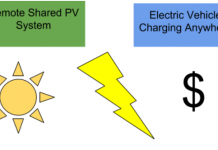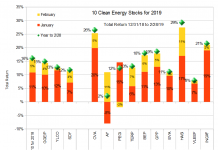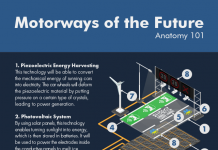Investors act in irrational, but predictably irrational, ways. That is the basic tenet of Behavioral Economics. (Looking for references, I came across an interesting book by that title
For me, these predictable irrationalities provide ways to profit from the mistakes of others in the market, so long as I do not fall into the same (or other) cognitive traps which cause the market opportunities in the first place. I describe one such technique in this article.
Applications to Policy Design
In addition to those of us who use it to make a slow buck (it’s the people trying to make a quick buck who are often most responsible for many of the opportunities) in the stock market, Behavioural Economics also has useful application to policy. Richard Thaler and Shlomo Benartzi, two of the foremost researchers of Behavioural Finance (Behavioural Economics as applied to investment decisions) used insights into why people procrastinate to design the Save More Tomorrow (SMarT) design for 401(k) defined contribution schemes to help employees who want to save more but lack the willpower to do so. This design is now incorporated into commercial products, such as Vanguard’s Autopilot 401(k) program.
In the researchers’ words (links mine):
[Save More Tomorrow] has the following ingredients: First, employees are approached about increasing their contribution rates a considerable time before their scheduled pay increase. Because of hyperbolic discounting, the lag between the sign-up and the start-up date should be as long as feasible. Second, if employees join, their contribution to the plan is increased beginning with the first paycheck after a raise. This feature mitigates the perceived loss aversion of a cut in take-home pay. Third, the contribution rate continues to increase on each scheduled raise until the contribution rate reaches a preset maximum. In this way, inertia and status quo bias work toward keeping people in the plan. Fourth, the employee can opt out of the plan at any time. Although we expect few employees to be unhappy with the plan, it is important that they can always opt out. Knowledge of this feature will also make employees more comfortable about joining.
Behavioral Gas Tax
Fellow energy blogger Jeff Vail at rhizome inadvertently reminded me of Save More Tomorrow by his assertion that "assuming rational consumer behavior is pretty silly, but any other basis of assumption is even more silly."
This begs the question, "How can a policy to reduce gas use be based on the fact that consumers are irrational?" Classical economics teaches us that we need to raise the marginal cost of behaviors which we don’t like, but behavioral economics tells us that we’ll get a lot more bang for our buck if we work with people’s irrational tendencies rather than against them.
Jeff has a clever idea for making a gas tax work better. If it were implemented, I expect it would be effective. However, the most important feature of any policy to reduce gas use is implementation. Voters must be willing to accept the policy, and while voters generally think that it’s a great idea to punish others for harming the environment, they’re still unwilling to actually make changes themselves… especially if it will effect their pocketbook.
Since it’s more effective to reduce driving than to attempt to increase the efficiency of the cars on the road, I used SMarT as a model to help people make the decision to use their cars less:
The Department of Motor Vehicles could offer drivers a discount on their annual auto registration if they agreed to buy an annual transit pass within the next 6 months. The instant incentive of savings would lure people to buy the more expensive pass, and because it’s the Department of Motor Vehicles, the car owner could be charged and the pass mailed to them on the date they specified at vehicle registration.
Some of the money from the transit pass would go to make up for the discount to the Vehicle Registration Fee, but since all these pass holders would by definition own cars, they would likely be relatively light transit users, meaning that the transit authority would still be getting enough money to cover their costs.
This scheme might not do much to reduce driving. Nothing is forcing anyone to opt in, and those who do might not end up using their passes… just like all the people who buy annual gym memberships and only show up once. But just like those "wasted" gym memberships, the extra funds could be used to improve the city’s transit system, over time making it more attractive and usable, and thus improving ridership.
On the other hand, because the scheme is voluntary, there would likely be little political opposition to enacting it, and the best way to reduce gas consumption is the method that actually gets passed.
Room for Improvement
I note that I’m not the only one thinking about behavioral economics and energy use. My idea is far from perfect… mainly because it would likely not do too much to reduce driving. If you have a suggestion, the comments are open.








